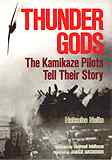|
|
||||||||||||||||||||||||
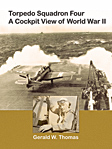 |
||||||||||||||||||||||||
|
|
||||||||||||||||||||||||
|
||||||||||||||||||||||||
|
|
||||||||||||||||||||||||
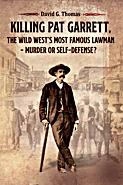 |
||||||||||||||||||||||||
 |
||||||||||||||||||||||||
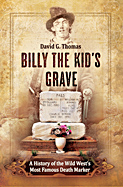 |
||||||||||||||||||||||||
|
|
||||||||||||||||||||||||
|
|
|
|
Thunder Gods: |
|
Book Review by Gerald W. Thomas, VT-4 |
|||
|
"As the 1941-45 war against the United States and its allies continued, the Japanese were constantly told that their primary purpose in life and the greatest glory they could achieve was to give their lives for the Emperor. They were also harangued with the warning that they should not allow themselves to be captured—that men would be tortured and killed, women would be raped and then dispatched." "Altogether, 3,913 Japanese kamikaze pilots died in the "special attack" missions against US and Allied forces during the war. Of these, 2,525 were navy men, most of whom were between the ages of 18 and 20. Some of them were 17. The remaining 1,388 were army pilots, most of them aged between 18 and 24. There are no accurate records of how many Japanese servicemen died in individual, spontaneous suicide attacks during the war, but the number was apparently significant." "Japanese servicemen who died in official suicide attacks were given posthumous promotions." Higher Flight Officer Motoji Ichikawa relates the following experience in the book: "Suddenly the voice of the officer of the day broke through the perpetual static of the barracks' public address system: 'All pilots line up in front of headquarters!´" "As soon as they were in formation, the wing commander, …without preamble, shouted, 'All those men who have single parents or are only children, raise your hands.' Puzzled, these men were ordered to return to the barracks. 'First sons also, break ranks and return to your quarters.'" "The wing commander ordered the remaining men to form a circle in front of him. He stated that the war news was very bad…. 'We must therefore somehow mount an offense that will bring excruciating pain and damage to the enemy…. To achieve this, we have developed a new and very special instrument of certain death…. But in order for this kind of special attack to succeed, the weapon has been designed as a one-way trip.'" "The wing commander then told the pilots they had to choose to take a one-way flight by writing 'Yes' or 'No' on their ID card and dropping them in a special box." "Ichikawa was tempted to write 'No,' but he knew he could not. He knew he would be condemned as unmilitary, as unmanly, if he were to refuse. So he wrote the 'Yes' on his ID card." Through a combination of circumstances, Flight Officer Motoji Ichikawa survived the war. He died in 1980 and his several volumes of notes were incorporated in the book Thunder Gods. Thunder Gods: The Kamikaze Pilots Tell Their Story was published in 1989 by Kodansha International/USA, Ltd, New York, NY 10011. The book was translated by Mayumi Ichikawa and contains a foreword by James Michener. |
|||
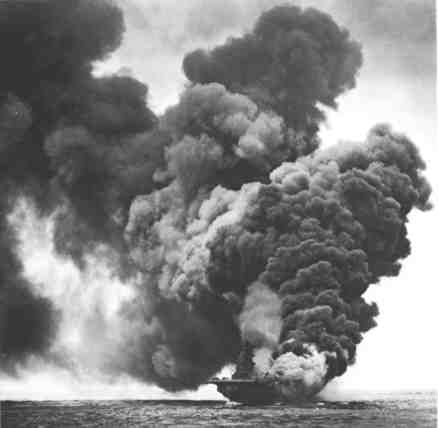 |
|||
|
After Air Group 4 was transferred off the Bunker Hill, the ship was hit by 2 kamikaze planes. The second kamikaze hit 30 seconds after the first. On the day of the attack (May 11, 1945), 2 destroyers were also damaged by Japanese suicide planes. The disaster tally on the Bunker Hill was 346 men killed, 43 missing, and 246 wounded. Although the ship was severely damaged, she was able to steam to Pearl Harbor and then to Puget Sound for repairs. |
|||
|
Air Group 4 - "Casablanca to Tokyo" |
|||
|
|
|||
